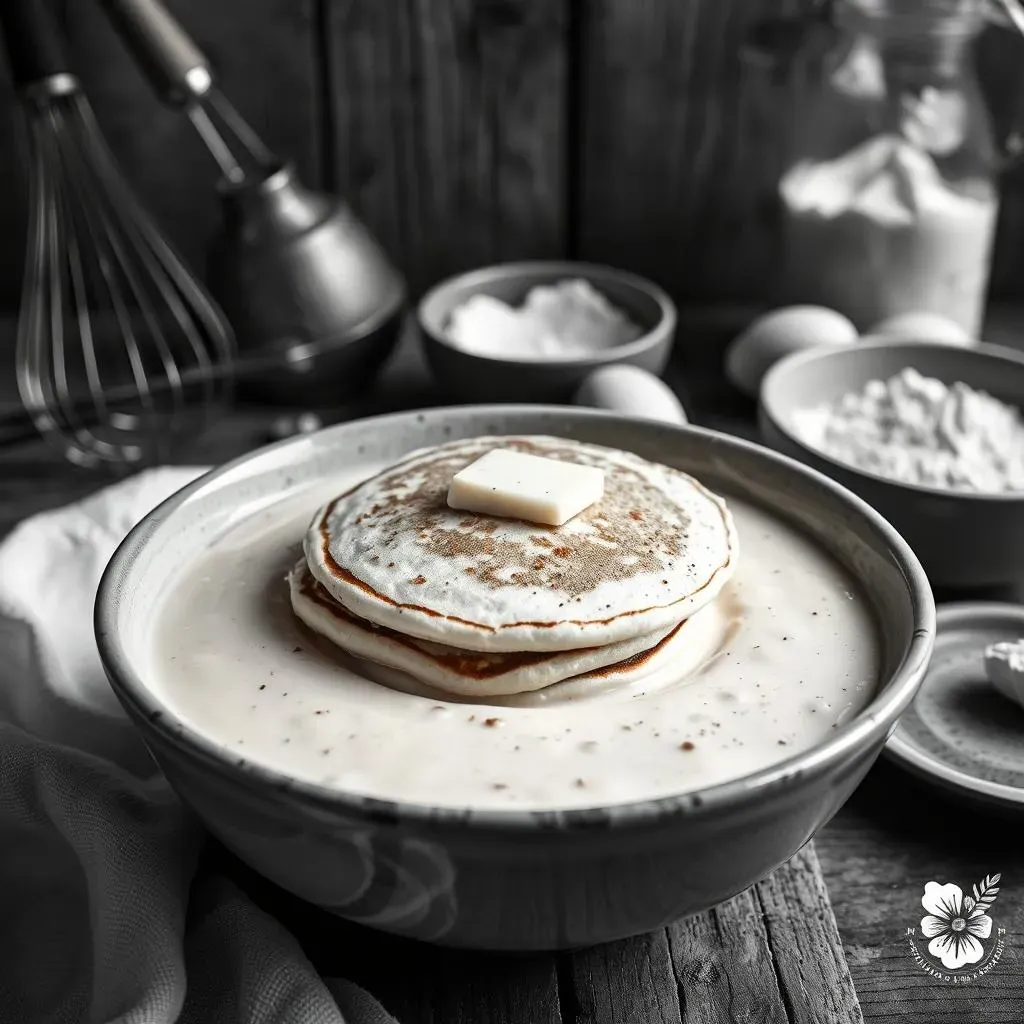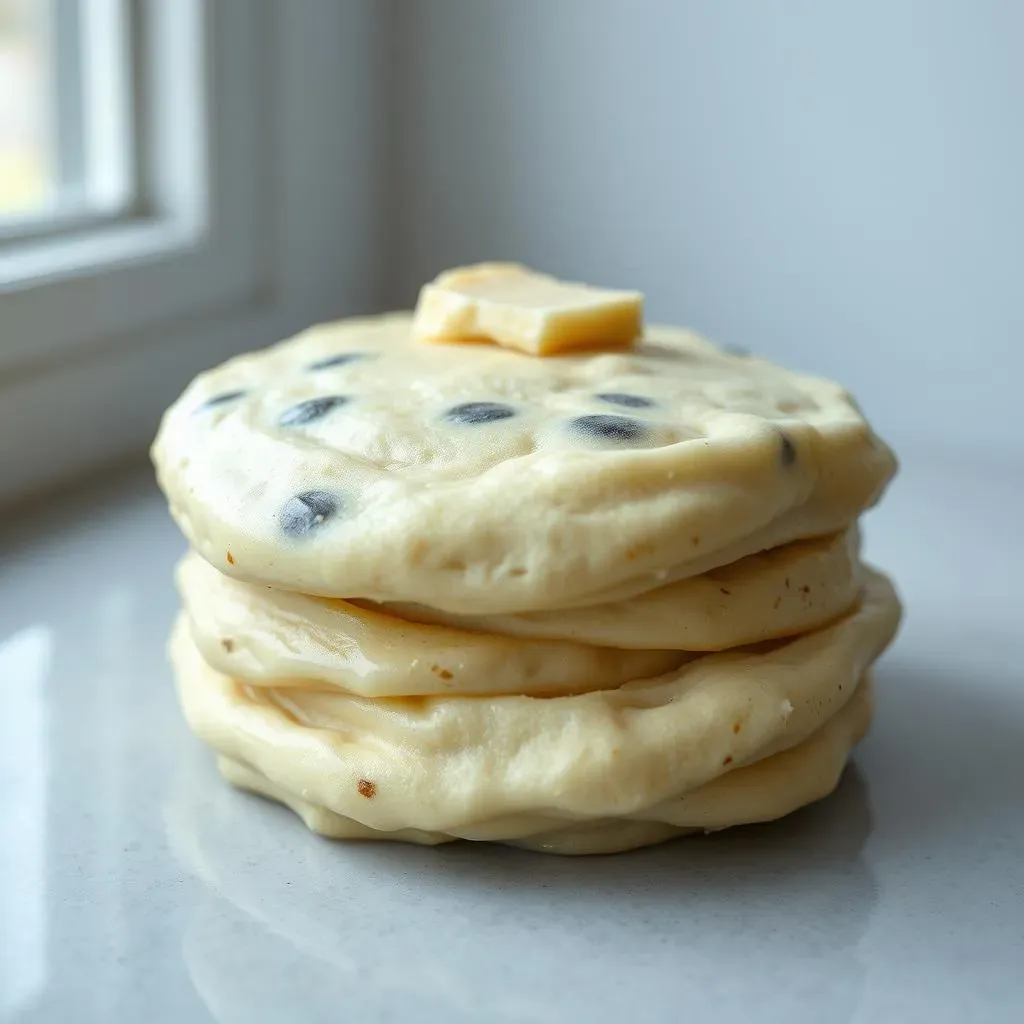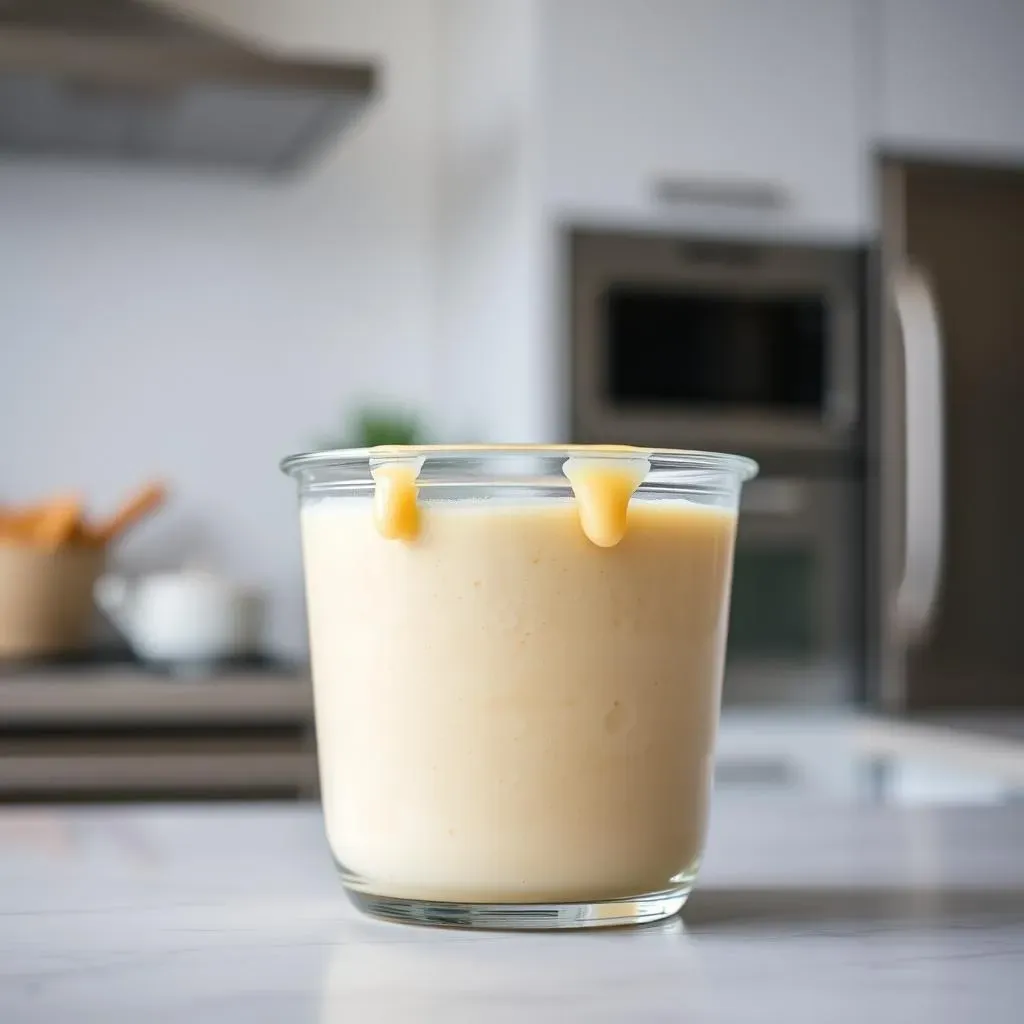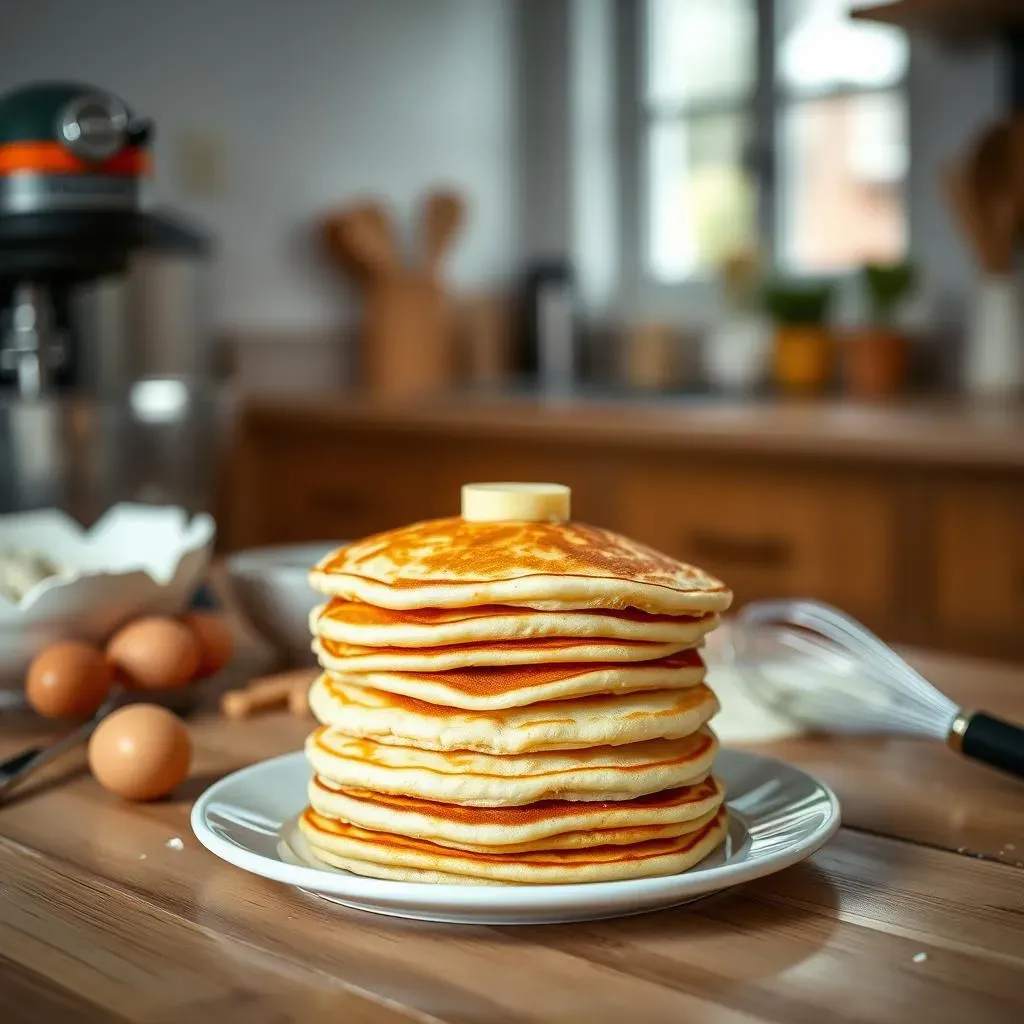Table of Contents
Picture this: It's Sunday morning, you're craving fluffy pancakes, but the thought of measuring out ingredients is just too much. You wonder, "will pancake batter keep in the fridge?" It's a question many of us have pondered, especially when we're trying to save time or reduce food waste. The good news is, yes, you can often store pancake batter in the fridge, but there are a few important things to know. This article will guide you through the ins and outs of refrigerating pancake batter. We'll explore how long it actually lasts, what signs to look for to ensure it's still good, and some handy tips for keeping it fresh. Plus, we will also discuss if prepping your batter beforehand is even worth the effort. So, if you're ready to become a pancake pro, let's get started!
How Long Will Pancake Batter Keep in the Fridge?

How Long Will Pancake Batter Keep in the Fridge?
so you've whipped up a batch of pancake batter, but you're not quite ready to flip those flapjacks. The big question then is, how long will it actually last in the fridge? Generally, pancake batter is good for about 1 to 2 days when stored properly. This isn't a hard and fast rule though, it depends a bit on the ingredients. If you used fresh milk and eggs, it will last for 2 days. If you used powdered milk and eggs, it can last a little bit longer. Keep in mind that the longer the batter sits, the more the leavening agents (like baking powder) will lose their oomph. This means your pancakes might not be as fluffy as they would be if you cooked them immediately.
Think of it like this: your batter is a bit like a science experiment. The longer it sits, the more chemical reactions will happen. While not harmful, these reactions can impact the texture and flavor of your pancakes. So while a day or two is generally safe, don't push it. It's also vital to store it correctly, which we'll cover later. But before we get there, let's talk about the signs that your batter has gone bad. No one wants a pancake that tastes like it's been sitting in the back of the fridge for a week!
Signs Your Pancake Batter Has Gone Bad

Signs Your Pancake Batter Has Gone Bad
The Sniff Test
so you've got your batter in the fridge, and it's been a day or two. Before you even think about pouring it onto the griddle, give it a good sniff. Does it smell like a normal pancake batter? Or does it have a sour, almost funky odor? If it smells off, it probably is. The sour smell is a sign that the batter has started to ferment, and that's definitely not something you want in your breakfast. Trust your nose on this one; it's usually right.
It's like when you open a carton of milk and it smells a little... strange. You know immediately that it's not good, right? Same logic applies here. If you're unsure, it's always better to err on the side of caution. Nobody wants a pancake that tastes like it came from a science experiment gone wrong.
Visual Clues
Next up, let's give that batter a good look. Is it the same color as when you first made it? Or does it have some weird gray or green spots? Any discoloration is a red flag. Also, check the texture. If your batter is too thick, clumpy, or even slimy, it's likely past its prime. Fresh batter should be smooth and pourable. If it looks like it's trying to morph into something else, it's best to toss it. It is often difficult to notice the changes in the texture, so it's useful to check the color first.
Sign | What to Look For | What it Means |
|---|---|---|
Smell | Sour, funky odor | Batter is fermenting |
Color | Gray or green spots | Spoilage is likely |
Texture | Too thick, clumpy, slimy | Batter is breaking down |
The Bubble Trouble
Finally, pay attention to any bubbles or foam on the surface of your batter. Now, a few bubbles are normal, especially if you've just mixed it. However, if you see a lot of bubbles or if they are excessive, that's a sign that the batter is actively fermenting, and not in a good way. It means the yeast is having a party, and your pancakes will likely taste a bit off, and potentially have a strange texture. So, if your batter looks like it's trying to turn into a science fair volcano, it's time to say goodbye. When in doubt, it's better to make a fresh batch. Pancakes are supposed to be enjoyable, not a gamble!
Tips for Storing Pancake Batter in the Fridge

Tips for Storing Pancake Batter in the Fridge
Airtight is Key
so you've decided to save some batter for later, smart move! The most important thing is to make sure that your batter is stored in an airtight container. Think of it like locking in the freshness and keeping out the fridge odors. Nobody wants pancakes that taste like last night's leftovers, right? A good container will also help to prevent the batter from drying out or absorbing any weird smells from the fridge. I like to use glass containers with a tight-fitting lid, but any container that seals well will work. If you don't have a container, a plastic bag will work, just make sure to squeeze out all the air before you seal it.
Also, avoid putting the batter in a bowl covered with plastic wrap. While it might seem like a good idea, plastic wrap is not airtight and can allow air to get in, leading to the batter drying out or absorbing weird smells. So, spend a little extra time to find a good container, it will make a huge difference.
Keep it Cool
Next up, let's talk about temperature. Your fridge should be at a consistent temperature of 40°F (4°C) or below. This is the ideal temperature to slow down the growth of bacteria and keep your batter fresh for as long as possible. Avoid putting your batter in the door of your fridge, since the temperature there is more likely to fluctuate. Instead, store your container of batter on a shelf in the main body of the refrigerator where the temperature is more consistent. This will make a big difference in the shelf life of your batter.
Think of your fridge like a cozy home for your batter, you want it to be at the right temperature to keep it happy. Also, avoid storing the batter next to strong-smelling foods like onions or garlic, as those odors can be absorbed by the batter. I once stored my batter near a container of kimchi, and let me tell you, kimchi pancakes are not a culinary masterpiece.
Tip | Why it Matters |
|---|---|
Airtight Container | Keeps out odors, prevents drying |
Consistent Temperature | Slows bacterial growth |
Avoid Door Storage | Temperature fluctuations |
Don't Overmix
Finally, and this one is super important, don't overmix your batter before storing it. Overmixing develops the gluten, which can make your pancakes tough and chewy instead of light and fluffy. Mix your batter until just combined, with a few lumps still remaining. The batter will continue to hydrate and come together in the fridge. When you're ready to cook, give it a quick stir, but don't overdo it. Think of your batter like a delicate flower, you don't want to over handle it. It's also useful to know that the longer you mix the batter, the more it will loose some of the air bubbles that are super important to make your pancakes fluffy.
So, there you have it, some key tips to keeping your pancake batter happy in the fridge. Store it well and you can enjoy fresh pancakes whenever you want, without any worries of a bad batch. It's all about the details, right? Now, let's talk about if all this effort is even worth it, or if it's better to just make a fresh batch each time.
Making Pancakes Ahead: Is it Worth it?

Making Pancakes Ahead: Is it Worth it?
The Convenience Factor
let's get real, making pancakes from scratch every single time can be a bit of a hassle, especially on busy mornings. That's where the idea of making batter ahead of time comes in. The big appeal of prepping batter in advance is the convenience. You can have it ready to go in the fridge, and then all you have to do is pour it onto the griddle. No more measuring, mixing, or dealing with a messy kitchen first thing in the morning. If you're someone who loves to sleep in but also loves a good stack of pancakes, this could be a game-changer. Think about it, you can enjoy a delicious breakfast with minimal effort. That sounds like a win to me!
However, it's important to weigh this convenience against the potential downsides. As we've discussed, pancake batter doesn't last forever, and it can lose some of its fluffiness over time. So, while making batter ahead can save you time, it's not a perfect solution. It's about finding the right balance between convenience and quality. If you're not too picky about your pancakes being absolutely perfect, then making batter ahead might be a great option for you. But, if you're a pancake purist, you might want to stick to making them fresh each time.
The Quality Trade-off
Now, let's talk about the trade-off. While convenience is great, there is a difference in quality between fresh batter and batter that has been sitting in the fridge. As we discussed earlier, the leavening agents in the batter start to lose their power over time. This means that your pancakes might not be as light and fluffy as they would be if made with fresh batter. The texture might be a little denser, and the flavor could be a bit less vibrant. It's not a huge difference, but it is something to consider.
It is like comparing a freshly baked loaf of bread to one that has been sitting on the counter for a couple of days. Both are still bread, but the fresh one is always better. The same logic applies to pancakes. If you're aiming for the absolute best pancakes, then making the batter fresh each time is the way to go. But, if you're okay with a slightly less perfect pancake in exchange for saving time, then making batter ahead is a viable option. It really comes down to your personal preferences and priorities.
Factor | Making Ahead | Making Fresh |
|---|---|---|
Convenience | High | Low |
Fluffiness | Lower | Higher |
Flavor | Slightly less vibrant | More vibrant |
Time | Saves time | Takes time |
The Final Flip on Fridge-Stored Batter
So, can you keep pancake batter in the fridge? Yes, you usually can, for a short period. Keeping an eye on the batter's condition is crucial, and if it shows any signs of spoilage, it’s best to toss it. While the convenience of pre-made batter is tempting, consider whether the slight time savings are worth the risk of a less-than-perfect pancake. Sometimes, making it fresh is the way to go, ensuring each pancake is as fluffy and delicious as possible. Now, go forth and conquer your next stack of pancakes, armed with the knowledge of how to handle that leftover batter.